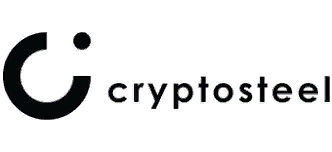Why don’t exchanges allow you to own your private keys?
For most new users in the crypto space, using a traditional crypto exchange (CEX - Centralized Exchange), is probably the most common gateway in getting first hand experience with crypto. Many CEXs today provide user friendly interfaces and regulated fiat-to-crypto on-off ramps to allow easy to purchase crypto options.
But as everyone has come to realize, when you want to access your own private keys pertaining to your crypto on a CEX, you actually end up not being able to find it. The reason is because you actually don’t own the private keys to your crypto. The CEX directly owns it in a custodial manner with a promise that you’ll be able to withdraw it from their platform when needed.
In most cases you only have access to a deposit address which allows you to deposit crypto from outside into your exchange account. And in some rare cases, you can access the public key. But every different crypto on the exchange is given its corresponding deposit address you can use.
At a high-level overview, CEXs hold the private keys to all of its users’ accounts. Your crypto and the exchange’s funds are all on their own wallets. Usually a large percentage of the funds are in their own managed cold wallets with the remainder held on hot wallets to cover daily withdrawal needs from users. So in essence, the CEX model is typical to that of a normal bank. They have direct control and access to your funds and will disperse it when you need to withdraw it.
So actual fiat purchases of crypto and transfering to other user accounts on the same CEX platform aren’t actual transactions on the blockchain. They are merely just recorded on the CEX’s own ledger accounting system so they know how much should be allocated to your account when you view your account details. It’s only until you withdraw crypto from their platform onto an outside self-custody wallet is when it’ll initiate an actual transaction on the blockchain. And that is also when you gain actual possession of your crypto.
Main reasons for CEXs to control user account funds is simply for easier control and user experience:
- Quicker transactions and exchanges when using the CEX
- Lower fees for users
- Reduced customer service issues with having a centralized wallet
- Users can use the exchange using a familiar username and password login set up
Other reasons could also include discretionary usage of reserve funds for their own benefit. Although this isn’t publicly stated, it sure is possible. How else would these centralized entities promote and advertise ridiculous APY yields their users can receive if they “stake” their crypto on their platforms? Fractional reserve banking in the traditional sense is still used as a model in many centralized crypto platforms.
Despite the easier UI/UX CEXs provide, there are obvious downsides when allowing exchanges to control user funds. What seemingly is becoming a quarterly incident (or even a monthly occurrence), exchanges may suffer from a multitude of hiccups including a data loss glitch, exit scams by the founder, a full shut down by regulatory bodies, and even a compromise of the exchange’s entire assets by hackers.
In October of 2020, large crypto exchange, OKEx, suspended all user withdrawal privileges for more than a month due to a designated “key holder” being taken away and questioned by authorities. Earlier this month, hackers stole over $150 million from crypto exchange Bitmart. The hackers supposedly were able to use a stolen private key in accessing the exchange’s hosted hot wallets. And for those who’ve been around the space for a while, we all remember the legendary Mt. Gox hack which still to this day is infamous for being one of the largest crypto exchange hacks ever.
So unless you are a crypto day trader or need some exchange services, you have really no need to leave your crypto on an exchange. Accidents do happen and they happen frequently with exchanges. Even the largest of crypto exchanges experience mishaps once in a while. By storing your crypto on an exchange, you do have access to your crypto, but under someone else’s conditions which can be up to their discretion.
Exchanges are definitely still a great way for a beginner to easily convert their fiat dollars to crypto. But many wallets, such as the Ballet Crypto App, now offer a decentralized method in buying and exchanging crypto. And the advent of DEXs in the DeFi world has negated the usage of CEXs.
But all in all, if you don’t have access to your private keys, it’s not your crypto.
HODL your own private keys.
Learn more about the best TOP 30 hardware cryptocurrency wallets
You can see this list here.
TOP 29 Hardware Wallets, the Official Online Stores
| 1 |  | Trezor hardware wallet, the official online store |  |
| 2 |  | Ledger hardware wallet, the official online store |  |
| 3 |  | KeepKey hardware wallet, the official online store |  |
| 4 |  | BitBox02 hardware wallet, the official online store |  |
| 5 |  | CoolWallet hardware wallet, the official online store |  |
| 6 |  | ELLIPAL hardware wallet, the official online store |  |
| 7 |  | D'CENT hardware wallet, the official online store. |  |
| 8 |  | SafePal hardware wallet, the official online store |  |
| 9 |  | SecuX hardware wallet, the official online store |  |
| 10 |  | BC Vault hardware wallet, the official online store |  |
| 11 |  | BitLox hardware wallet, the official online store |  |
| 12 |  | Keystone hardware wallet, the official online store |  |
| 13 |  | ProKey hardware wallet, the official online store |  |
| 14 |  | NGRAVE hardware wallet, the official online store |  |
| 15 |  | Keevo hardware wallet, the official online store |  |
| 16 |  | GridPlus hardware wallet, the official online store |  |
| 17 |  | Ballet hardware wallet, the official online store |  |
| 18 |  | OPOLO hardware wallet, the official online store |  |
| 19 |  | Foundation (Passport) hardware wallet, the official online store |  |
| 20 |  | ImKey hardware wallet, the official online store |  |
| 21 |  | Tangem hardware wallet, the official online store |  |
| 22 |  | HashWallet hardware wallet, the official online store |  |
| 23 |  | Material Bitcoin hardware wallet, the official online store |  |
| 24 |  | ShieldFolio hardware wallet, the official online store |  |
| 25 |  | OneKey hardware wallet, the official online store |  |
| 26 |  | Blockstream Jade hardware wallet, the official online store |  |
| 27 |  | Cypherock hardware wallet, the official online store |  |
| 28 |  | Keepser hardware wallet, the official online store |  |
| 29 |  | NEXA hardware wallet, the official online store |  |












































